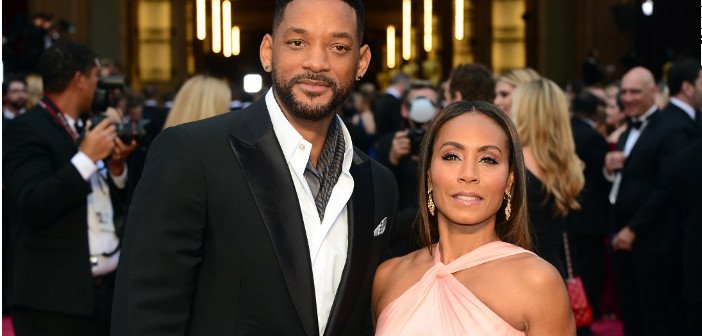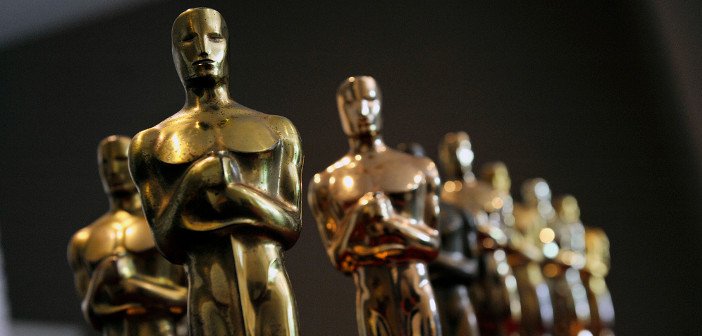Solving the Problem of Racism in the Film Industry isn’t so Black and White
Glitz, glamour and gold statuettes; the bright lights of Hollywood boasted all of these on Sunday as it played host to the 88th Academy Awards. However, underneath the glitter a griminess had risen up to overshadow the ceremony. For the second year in a row, every Oscar nominee for every acting award was white. Not a single actor or actress of colour had been nominated.
While this didn’t seem to generate much buzz during 2015’s awards, objections to the lack of diversity this year were loud and clear. The outrage expressed in the #OscarsSoWhite Twitter hashtag certainly brought the loud, but it was the boycott of the ceremony itself, endorsed by Jada Pinkett-Smith, Will Smith, and Spike Lee among others, which made it clear that this kind of discriminatory oversight is no longer acceptable.

The response from the Board of Governors of the Academy of Motion Picture Arts and Sciences when addressing the situation came as a surprise. Rather than denying any accusations of racism or trying to explain the reasoning behind their nominations, they instead announced a series of changes to be made to the way the Academy functions in order to increase diversity. These included changing the status of voting members, alongside adding three new seats to the Board of Governors to be filled by “women and people of colour” as the official announcement stated.
Academy President Cheryl Boone Isaacs pledged that these changes would “have an immediate impact and (begin) the process of significantly changing our membership composition.” And not a moment too soon as, according to an investigation by the Los Angeles Times in 2012, voting members of the Academy are currently 94% white and 77% male, with an average age of 62. Some variety won’t go amiss.
The controversy was addressed last night by the ceremony’s host for the evening, comedian Chris Rock, who did what he does best and approached the heavy subject with humour. “I’m here at the Academy Awards,” he began, “otherwise known as the White People’s Choice awards.” His opening monologue was not only hilarious but also relentlessly critical of America’s history of racism.[pullquote]According to an investigation by the Los Angeles Times in 2012, voting members of the Academy are currently 94% white and 77% male, with an average age of 62.[/pullquote]
When answering the rhetorical question of why people are boycotting these Oscars when it is not the first year that only white actors and actresses have been nominated, Rock replied that in previous decades, black people were “too busy being raped and lynched to worry about who got best cinematographer,” and even made allusions to the current epidemic of unjustified police killings in the States. “This year in the ‘In Memoriam’ package, it’s just going to be black people that were shot by the cops on their way to the movies.”
His monologue took a more serious turn however as he considered whether Hollywood is truly racist or not. His sincere answer was ultimately yes. “Is it burning cross racist? No. Is it ‘fetch me some lemonade’ racist? No, no, no! It’s a different type of racist.” It’s what Rock labels ‘sorority’ racist, that is, ‘We like you but you don’t belong with us.’
However, not all reactions to the controversy were as progressive. Last month, Charlotte Rampling, nominated for Lead Actress for her role in 45 Years, went on record to claim that Jada’s and Will’s boycott of the ceremony was “racist to whites.” Oh dear. Not only is Rampling’s statement utterly tone-deaf to the concerns that are fuelling their boycott, it is also untrue.

Racism is a system. It unconsciously informs policies and cultural attitudes towards non-white races and discriminates against them. It is a system that benefits white people, they can never be hurt by it. Can you discriminate against someone just because they are white? Of course, but it will never go beyond the individuals that chose to do so – as opposed to the racism which operates on a level that impacts society as a whole, and whose repercussions can be felt in incidences such as this year’s Oscar nominations.[pullquote]Racism is a system. It unconsciously informs policies and cultural attitudes towards non-white races and discriminates against them. It is a system that benefits white people, they can never be hurt by it.[/pullquote]
Unfortunately, Rampling continued to dig herself into a hole. “Perhaps the black actors did not deserve to make the final list,” she suggested, implying that no black actor or actress is as good at their job as every single one of their white counterparts. Charming. This sentiment was echoed by Micheal Caine who expressed his opinion to the BBC despite not being nominated for an Oscar or having anything to do with the ceremony this year. “You can’t say: I’m going to vote for him, he’s not very good but he’s black, I’ll vote for him. You’ve got to give a good performance.”

The problem with both of these statements is that they believe that lack of skill is the only thing preventing non-white actors from being nominated. They are also presuming that Academy members are only voting for nominees on the basis of merit. As noble as the idea of a meritocracy is, it operates on the assumption that everyone starts off on an equal playing field, and that race, gender, sexuality and social class do not factor into any sort of decision: a nice, if unrealistic, ideal.
The omission of non-white actors and actresses from being awarded an Oscar is not an isolated problem but rather a symptom of a much more serious disease. A study conducted by researchers from the University of Southern California Annenburg showed that out of the 100 top-grossing films of 2014, 73.1% of all characters shown on screen have been white. Further study showed that this percentage hasn’t changed since 2007.

Rock’s speech came to a close on a sincere appeal to the Academy and its peers. “We want opportunity. We want the black actors to get the same opportunities as white actors, that’s it! That’s it!” Rock’s address, rather than trying to dismiss the issue or discuss it in a heavy-handed way, struck the right balance between funny and serious for the role he played on that night. His words also pinpointed that the true cause of such discrimination is not solely the responsibility of the Academy, but is also a problem within the film industry itself.
The exclusion of people who aren’t white from acting roles in Hollywood is absolutely nothing new. The industry itself suffers from a lack of diversity, which not only hurts the chances of non-white people being nominated for awards, but also creates a harmful environment in which they are less likely to be considered for acting jobs at all.[pullquote]As noble as the idea of a meritocracy is, it operates on the assumption that everyone starts off on an equal playing field, and that race, gender, sexuality and social class do not factor into any sort of decision: a nice, if unrealistic, ideal.[/pullquote]
Racial tensions in America, especially concerning Black Americans, have become more and more visible in the past few years. The Oscar nominations, and the various reactions to them, are reflective of this. Although the Academy itself intends to change the way in which it operates in order to be more inclusive, a complete overhaul of the practices of the American film industry is necessary in order to support and facilitate this. However, with attitudes as divided over the Oscars this year as it is, changing them in order to find a resolution to such a complex problem isn’t quite simply, if you’ll pardon the expression, so black and white.
